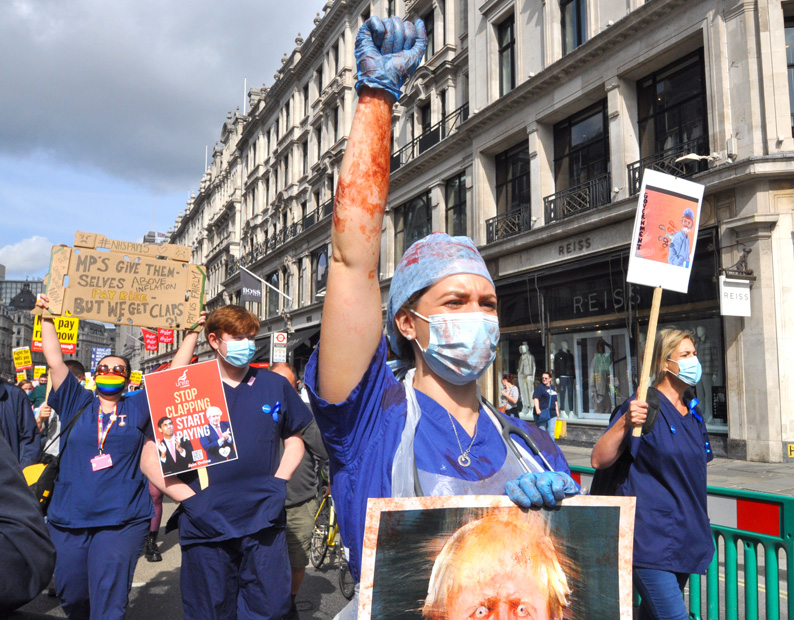ALMOST six million people are waiting to have hospital treatment in England, the latest NHS monthly performance statistics revealed yesterday.
The number of patients on the waiting list for non-urgent surgery such as hip or knee replacements or cataract operation rose to 5,975,216 in October, the highest since records began in August 2007. Unions are warning patients are being put at risk.
Nurses union the RCN’s Director for England, Patricia Marquis, said: ‘This shows the reality of the pressures facing health and care services and these show little sign of improving.
‘We hear of investment in beds, equipment and clinics but no real recognition of the need for an equally urgent need for investment in the nursing workforce needed to deliver the care to patients.
‘Growing vacancies are not safe for patient care and ministers need to wake up to this reality or they risk damaging patient care for years to come.’
Dr Farah Jameel, GPC chair at the British Medical Association (BMA), said: ‘These figures further underline the extent of the workforce crisis blighting general practice in England – fewer GPs, ultimately means fewer family doctors able to provide patients with the care they need. In the last six years, we’ve lost the equivalent of 1,744 full-time, fully qualified GPs – with 40 more having now left the workforce in the last month, a total of 321 since last December alone.’
Meanwhile, hospital admissions from the Omicron variant of Covid may reach at least 1,000 a day in England by the end of the year without extra restrictions being put in place, government advisers warned yesterday.
The Scientific Advisory Group for Emergencies (SAGE) is made up of around 30 scientists who offer advice to the government on how to react to the pandemic in the UK.
In the minutes of their latest meeting this week they say: ‘With the speed of growth seen, decision makers will need to consider response measures urgently to reduce transmission if the aim is to reduce the likelihood of unsustainable pressure on the NHS.’
The scientists say it is ‘highly likely’ Omicron will account for the majority of new coronavirus infections in the UK within ‘a few weeks’.
And they say the peak of the wave is ‘highly likely to be higher’ than 1,000-2,000 Omicron hospital admissions per day without new rules to slow the spread of rising infections.
There are currently around 680 people admitted to hospital each day with the Delta variant in England (latest seven-day average). At the peak of the last winter wave of coronavirus, hospitals in England were admitting 3,811 people a day infected with the virus.
